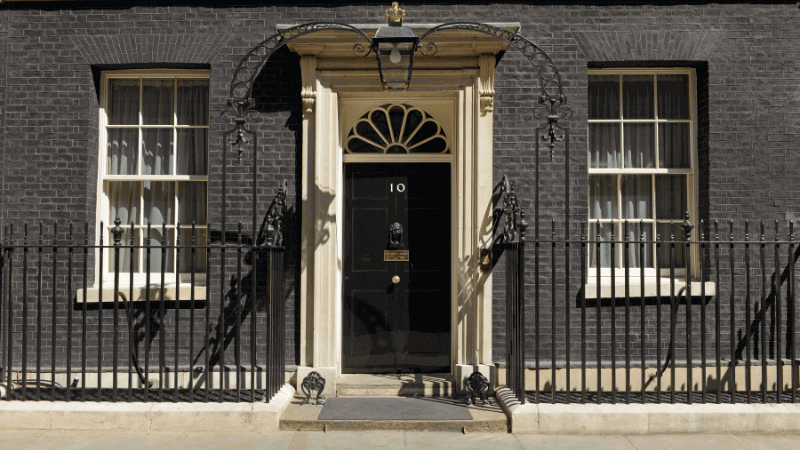Categories
Spring Budget 2024: 5 Key Takeaways for the Property Market

Property owners are left wondering what to expect after the Chancellor proposed changes to short-term lets, capital gains tax, and the non-domicile status.
Chancellor Jeremy Hunt announced in his Spring Budget that the government plans to scrap multiple dwellings relief and the furnished holiday lettings tax regime.
National Insurance has also been cut by a further 2% to an overall 8% on earnings between £12,570 and £50,270. The 2023 Autumn Budget also posed a 2% National Insurance reduction, and the overall drop of 4% is expected to save the average worker around £448 per year.
The primary reason for the changes to the multiple dwellings relief is to give first-time buyers more equal footing in the property market against seasoned property investors and to dilute the holiday let and Airbnb market in areas that are affecting long-term renters.
But how do his proposed changes affect property owners and those looking to get onto the property ladder?
Here are the Spring Budget’s key changes regarding the property market and how they will affect Britons moving forward.
Related: 2024 Spring Budget - What it Means For SMEs

In This Guide:
Furnished Holiday Lettings Regime
What Does This Mean For the Property Market?
Is Property Investment Still Worth It?
1. Multiple Dwellings Relief Abolished
Multiple dwellings relief (MDR) is a tax relief scheme in the United Kingdom that reduces the amount of Stamp Duty Land Tax (SDLT) payable on purchasing multiple residential properties in a single transaction. SDLT is a tax that buyers typically pay when they purchase land or property over a certain price threshold.
Under MDR, if an individual or a company purchases multiple residential properties (such as apartments or houses) in a single transaction, they may be eligible for a reduced rate of SDLT compared to buying each property separately.
This regime was introduced with the intention to support buy-to-let investments, but according to an external evaluation, there was “no such evidence that it had done so, and that it was regularly being abused”, leading the Chancellor to retire the scheme.
It ultimately means that portfolio landlords and large-scale property investors won’t get a tax discount for buying multiple dwellings in one transaction.
However, one side-effect of abolishing this policy for the everyday property buyer is that MDR often applies to properties with annexes.
2. Furnished Holiday Lettings (FHL) Tax Regime Abolished
Amid a throng of new legislation on long-term rentals, many property investors have turned to holiday lets for larger returns.
This trend emerged around 2020 when many investors capitalised on the rising demand for holiday lets as Britons flocked to Cornwall and Devon during this limited travel period.
The furnished holiday lettings tax loophole allowed holiday let owners to deduct the cost of furnishing from their pre-tax profits, which, combined with the high demand for holiday lets during this period, presented lucrative returns for property investors.
However, the high concentration of holiday lets has led to a shortage of long-term rentals for locals in these areas. The chancellor has scrapped the holiday let tax scheme to open up more long-term rental opportunities for locals, aiming to support the local economies of holiday hotspots that have suffered during quieter winter periods.
The scheme will be abolished in April 2025, adding to the reduced popularity of holiday lets in seaside areas like Cornwall and Devon, which has already stagnated now that international travel is more readily available post-COVID.
3. Non-Dom Tax Status Scrapped
If you earn over £125,141 in the UK, you’ll be subject to 45% income tax, which is relatively high globally. However, the Non-Domicile tax status allowed wealthy individuals to reside in the UK but mark their permanent residence as their home country, typically with lower tax rates.
One of the most prominent non-doms in the UK is Akshata Murty, wife of Prime Minister Rishi Sunak. Hunt previously defended the non-dom status, arguing that it made the UK an attractive place to live for wealthy individuals, which benefitted the economy.
This is one of the most controversial changes in legislation proposed in the Spring Budget, not only because it presents massive changes for the 37,000 non-doms currently residing in the Uk, who are already paying a collective £6billion in taxes.
The Institute of Fiscal Studies has advised the Chancellor to ‘tread carefully’ regarding major change surrounding this status, because it could cause these individuals to move elsewhere and take this revenue with them.

4. 2% Capital Gains Tax Reduction
Capital gains tax (CGT) is a tax imposed on the profit (capital gain) that individuals or businesses make when they sell or dispose of an asset that has increased in value.
Capital gains tax isn’t just something that affects wealthy individuals. In the past 30 years, the average property price has increased exponentially, leading many property owners to sell up to access the equity their properties have accrued – thus incurring a CGT charge.
While only a small reduction, this is likely a welcome change to anyone selling a buy-to-let property amid the current cost-of-living crisis.
5. 265,000 New Homes in London
In the ever-evolving capital city, more and more first-time buyers are finding themselves priced out of the property market. The chancellor has promised to develop boroughs that are already attracting first-time buyers due to more affordable housing. Offering first time buyers a larger piece of the pie in the London housing market.
What Do the Experts Say?
Oliver Roylance-Smith
Director & Co-Founder
What Does This Mean for the Property Market?
While there have been some changes offering relief to homeowners and families, the removal of these tax relief schemes may not be welcome news to buy to let investors who are already struggling to make a profit in the current market – although this will be offset by the capital gains tax reduction for those who are selling up.
Property investors may look to trade Airbnbs for HMOs, which will certainly benefit young professionals in areas where rental property is competitive. The reduction in capital gains tax will put marginally more in the pockets of those who are looking to sell up soon.
However, the Bank of England is confident that inflation will fall below 2% before June, meaning mortgage rates will likely drop further. This will certainly take some weight off property investors and homeowners who are repaying residential and BTL mortgages.
Related: Best Place to Invest in Property 2024 Revealed
Is Property Investment Still Worth It?
Yes, property investment is generally still lucrative. There are additional hoops to jump through, but you can still make a profit. There is a constant demand for housing, driven by population growth, urbanisation, and evolving demographics.
Cities across England and Scotland are seeing higher rental yields than ever, and property has historically been a reliable area of investment.
See similar: UK's Top 10 Rental Rental Yield Hotspots

Need Mortgage Advice?
Whether you’re a portfolio landlord looking for your next investment or you’re looking to buy a home, we have the answers you need.
Working with an experienced broker can help you get the most out of your mortgage. At Clifton Private Finance, we have longstanding relationships with high street, private and specialist lenders across the market.
We have access to market-leading rates and can get you the best deal for your unique circumstances.
To see what we can do for you, call us at 0203 900 4322 or book a free consultation below.









.png)

